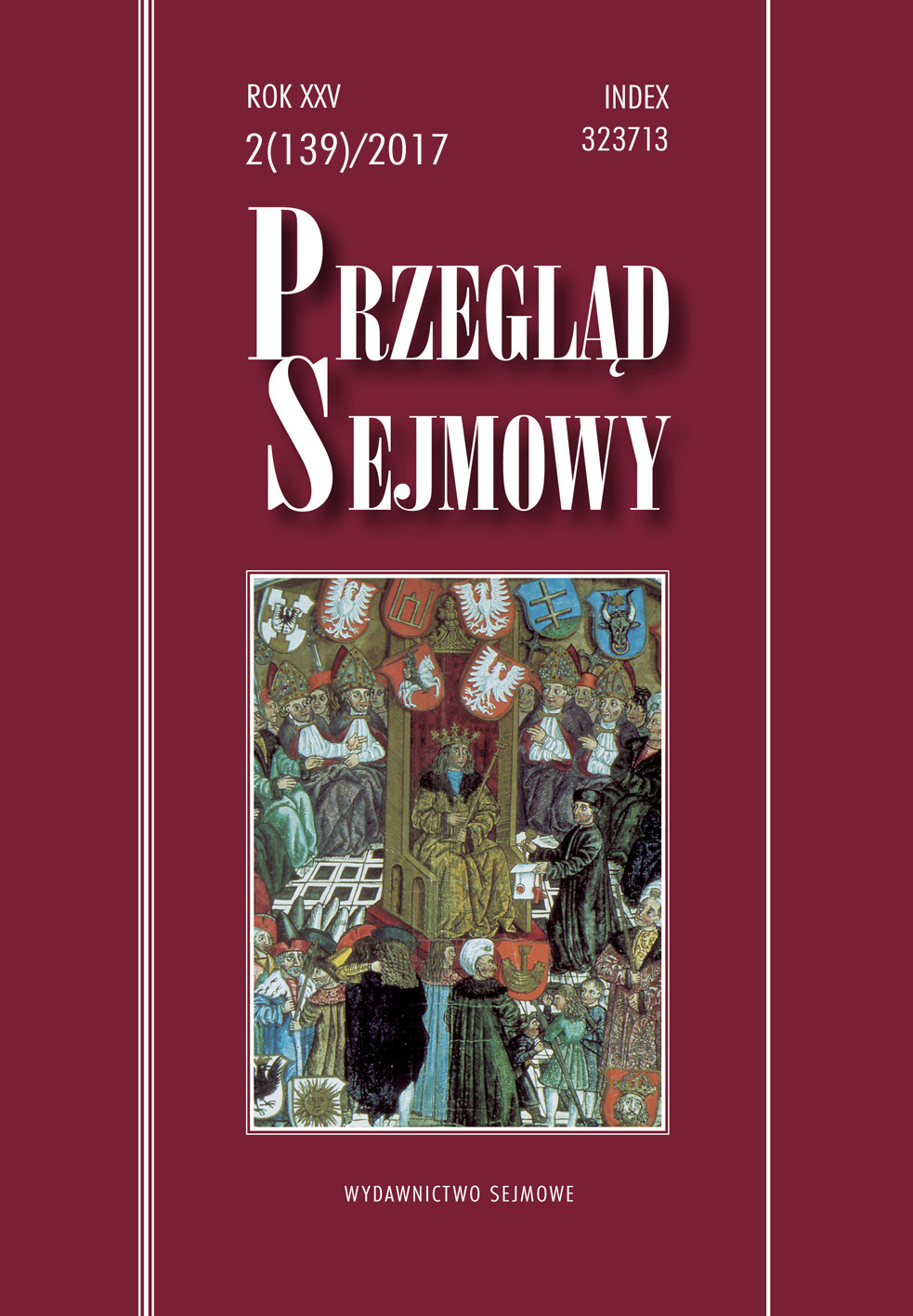Rozwiązanie legislatywy w systemie parlamentarnym
Dissolution of the Legislature under the Parliamentary System of Government
Author(s): Ryszard Mariusz MałajnySubject(s): Law, Constitution, Jurisprudence, Constitutional Law
Published by: Kancelaria Sejmu
Keywords: parliament; dissolution of parliament; shortening of term of legislaturę; head of state; prime minister;
Summary/Abstract: It is noticeable that, while the parliament has a lot of constitutional checks against the government, the latter does not, at least directly, have such a weapon. It must avail itself of good will of the head of state and his willingness to cooperate. Two constitutional checks are in play: the dissolution of the legislature and the vetoing of the statute passed by it. The fi rst is considered a counterbalance to the procedure for exercising parliamentary responsibility by way of a motion of no confi dence. It has inhibiting effect on the legislature reducing their desire to apply this measure. Obviously, as a rule, its application leads to the immediate termination of the legislature’s mandate and necessitates the holding of a new election. It is, therefore, a measure to exert pressure on the parliament, used as a form of psychological blackmail. No MP will willingly resign from seat, especially in the face of an expensive, costly and cumbersome election campaign whose outcome is uncertain. In theory, the threat of dissolution of the legislature alone had to ensure a balance between it and the executive branch. Normally, use of this threat is enough to prevent the government from falling, because its parliamentary faction then closes ranks and ceases a revolt against its leadership. And when the threat does not work, it usually is put into effect. This measure is intended to be used as a means of resolving a fundamental confl ict between the supreme state authorities, the confl ict which has damaged their ability to cooperate. The examined instrument is sui generis a counterpoint to the vote of no confi dence, or a “deterrence.” Thus, it signifi cantly affects the functioning of the entire state system.
Journal: Przegląd Sejmowy
- Issue Year: 2017
- Issue No: 2
- Page Range: 27-50
- Page Count: 24
- Language: Polish

